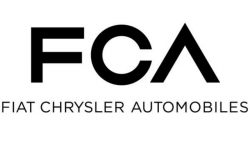
— Fiat Chrysler Automobiles (FCA US) failed to meet federal fuel economy and emissions standards for 2017 models, causing the automaker to pay a $79 million penalty to the government.
The end result to a consumer is the higher price paid for a vehicle once the National Highway Traffic Safety Administration (NHTSA) forces an automaker to pay millions in penalties for failing to meet U.S. emissions standards.
Chrysler is only one of multiple automakers that have not met strict federal greenhouse gas emissions standards, as well as related fuel economy standards for 2017 model year vehicles.
According to NHTSA, FCA is joined by 12 other major automakers out of 18 which have failed to comply with 2017 model year federal standards. And the news isn't any better for 2018 and 2019 models that cannot meet standards set by NHTSA and the Environmental Protection Agency (EPA).
NHTSA says most automakers continue to fall behind current standards as 2017 model year vehicles were supposed to provide 33.8 miles per gallon but came up short by 1.5 mpg.
FCA had already been nailed with a $77 million penalty for missing emissions and fuel economy standards on 2016 models, but the automaker says the latest $79.4 million fine won't have a "material effect" on the company.
Automakers are investing billions of dollars into electric and hybrid vehicles as the Trump administration seeks to rewrite fuel economy standards put in place by the Obama administration.
Under the Obama plan, consumer vehicles should provide estimated fuel economy of 46.7 mpg by 2026, while Trump's administration says 37 mpg is a more reasonable goal.
The current administration is also battling California and other states that claim standards set by Obama's administration is necessary to combat climate change as consumers become accustomed to electric vehicles.
The gap between fuel economy standards and what gasoline and diesel engines produce in the real world is nothing new as Volkswagen's emissions scandal proves.
Based on testimony from VW engineers and management, the automaker's use of emissions "defeat devices" was needed because the diesel engines couldn't meet strict U.S. standards for nitrogen oxide emissions.
Volkswagen and other automakers are also facing the same challenges in Europe as regulators responded to Volkswagen's sins by creating the Worldwide Harmonised Light Vehicle Test Procedure for emissions which applies to all vehicles in the European Union.




